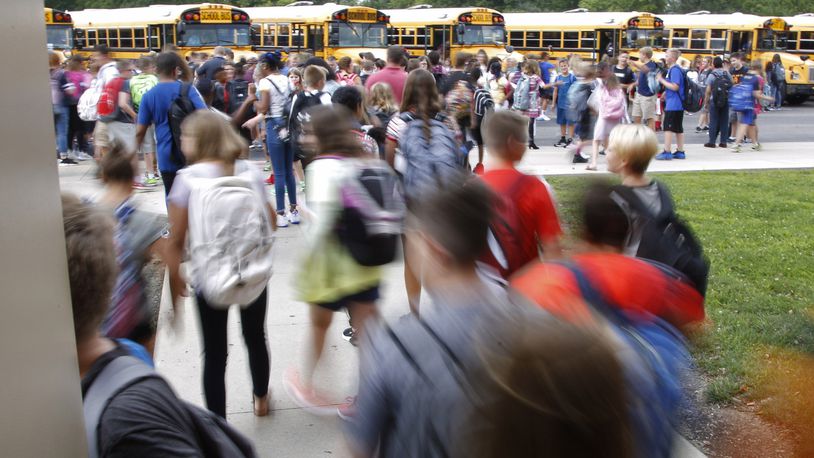While these numbers are serious, there are also practical ways that parents and community members can help youth, according to Emily Weitz, Community Behavioral Health Outreach Coordinator with Dayton Children’s and the On Our Sleeves campaign for mental health.
“Even though times are hard right now, there is hope and light at the end of the tunnel, and there are things that we can do to help improve things right now,” Weitz said.
The On Our Sleeves campaign is about empowering all adults in a child’s life to help, and she said there are ways everyone can learn to help beyond just licensed mental health professionals.
“It’s not just something to be left to the mental health professionals, especially right now where you’re going to see wait times six to eight weeks just to get an initial appointment,” she said.
First, when talking to youth Weitz said that it’s important to acknowledge that the last few years have been hard. Normalize that it has been rough and that the teen’s feelings are valid.
The new analyses from the CDC described some of the severe challenges youth encountered during the pandemic:
- More than half (55%) reported they experienced emotional abuse by a parent or other adult in the home, including swearing at, insulting, or putting down the student.
- 11% experienced physical abuse by a parent or other adult in the home, including hitting, beating, kicking, or physically hurting the student.
- More than a quarter (29%) reported a parent or other adult in their home lost a job.
Supporting teens
Weitz said that depression is a persistent feeling of sadness and hopelessness and the opposite of that is helping teens feel hope.
“So how do we strengthen our teens’ hope? Some of the things that parents could do is to help encourage their team to re-engage in the social activities that they were involved in pre-pandemic, and then also encourage them to engage in social activities with their peers,” she said.
Some teens might need help re-figuring that out, and parents can help such as helping arrange to have their teen’s friends over to the house. Or parents might realize that they too have lost their health boundaries over the pandemic with their phones and social media, and can work together with their teen to reset those boundaries.
Getting good sleep and re-teaching time management can help. And Weitz said just spending face time together with the teen and building that relationship can help.
Unequal experiences
Lesbian, gay, and bisexual youth and female youth reported greater levels of poor mental health; emotional abuse by a parent or caregiver; and having attempted suicide than their counterparts.
In addition, over a third of students said they experienced racism before or during the COVID-19 pandemic. The highest levels were reported among Asian students and Black students and students of multiple races.
The survey cannot determine the extent to which events during the pandemic contributed to reported racism. However, the CDC stated that experiences of racism among youth have been linked to poor mental health, academic performance, and lifelong health risk behaviors.
A sense of being cared for, supported, and belonging at school — called “school connectedness” — had an important effect on students during a time of severe disruption, the CDC reported. However, fewer than half (47%) of youth reported feeling close to people at school during the pandemic.
Help the teen in your life
Free mental health guides on many topics can be found at childrensdayton.org/onoursleeves. Anyone can also sign up for a free newsletter to get guides in their inbox with ways to help.
If you or your child need immediate help due to having suicidal thoughts, call the National Suicide Prevention Lifeline at 1-800-273-TALK (8255) or text the Crisis Text Line by texting “START” to 741-741.
If there is an immediate safety concern, call 911 or go the nearest emergency room.
About the Author
